Honors Students Present Senior Thesis Projects
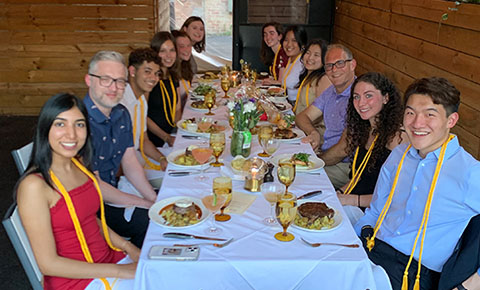 Twelve School of Education and Social Policy honors students were recognized for rigorous and thoughtful scholarship by Dean David Figlio and faculty members during an online ceremony and poster presentation session.
Twelve School of Education and Social Policy honors students were recognized for rigorous and thoughtful scholarship by Dean David Figlio and faculty members during an online ceremony and poster presentation session.
“These honors projects represent cutting-edge research, with each addressing a topic of clear theoretical as well as practical interest,” said professor David Rapp, director of undergraduate education, who teaches the Senior Thesis Seminar. “It’s truly amazing and inspirational to see young scholars, who are initially nervous, grow increasingly confident and then excited to share their timely and contemporary work.”
The 2021 SESP honors students include Adina Barg, Sophie Boorstein, Rohan Xavier Gupta, Akie T. Kadota, Rachel Kwak, Madeline Lane, Julia Lowenthal, Alka Meresh, Desmond O’Keefe, Lauren Reynolds, Simon Su, and Madeleine Ward.
Kadota tied for first place in the Understanding Our World panel at the Undergraduate Research and Arts Expo for her project, “The Effect of Remote Learning on Secondary Ensemble-Based Music Education.”
The SESP Honors Program uses a unique cohort model that provides layers of support for students. Participants meet regularly as part of Rapp’s seminar, and in addition to working with two advisers, they also connect with peers who are facing similar struggles and successes.
To be eligible, students must have a 3.5 GPA at the end of Winter Quarter during their junior year. In the spring, they can take a thesis proposal design course, Advanced Research Methods, taught by Lilah Shapiro, where they review previous studies, identify research questions, and design an independent research project tailored to their interests. Over the course of the following school year, they refine their questions and project design.
The experience often also leads to self-reflection; by the end of the year, they’ve learned their strengths and how to navigate obstacles. The students are prepared for a number of possible careers after they leave Northwestern, including industry and non-profit positions, not just research in academia, Rapp said.
Other faculty and staff in the honors program included Sarah Larison, who served as the teaching assistant, and Shelena Johnson, SESP senior academic adviser, who was the administrative coordinator. Shapiro was an adviser or reader for five of the 12 students.
The senior thesis topics covered a wide variety of topics, with several focusing on how different groups of people (music teachers, Black business owners, college students) coped during the COVID-19 pandemic. Others studied preschool disciplinary practices, the impact of misnaming women who identify as Asian, the role of acceptable speech on campus, and more.
Below is a full list of students projects:
Adina Barg
Better Understanding Preschool Disciplinary Practices in the 21st Century: Drawing on the Voices of Early Childhood Educators
Terri Sabol, Adviser
Teresa Sommer, Reader
Barg looked at preschool disciplinary practices by interviewing administrators and teachers from four Evanston-area. “I saw a shift away from negative disciplinary actions such as time outs, suspension, and expulsion towards a more positive reframing of behavior management such as safety breaks and the use of redirection,” she said. She was inspired by the class “Crafting Child Policy,” taught by Terri Sabol, assistant professor of human development and social policy, who became her primary thesis adviser. Next year she plans to attend the University of Haifa for a Master’s in Child Development.
Sophie Boorstein
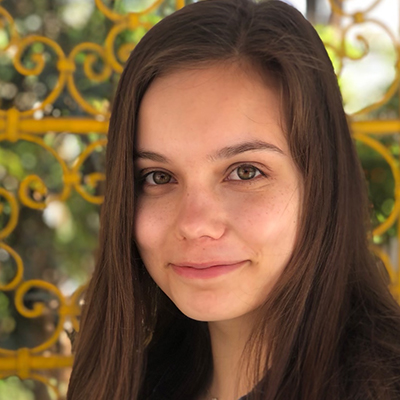 Black-Owned Small Businesses in Englewood, Chicago: Documenting the Effects of COVID-19 and the Black Lives Matter Movement in 2020
Black-Owned Small Businesses in Englewood, Chicago: Documenting the Effects of COVID-19 and the Black Lives Matter Movement in 2020
Jonathan Guryan, Adviser
Elizabeth Tipton and Reuel Rogers, Readers
Leveraging her skills in social policy and statistics, Boorstein examined how COVID-19 and the Black Lives Matter movement affected Black-owned small businesses in Englewood in the spring and summer of 2020. She interviewed Black-identifying business owners and analyzed foot traffic data to find how people shopped given stay-at-home orders and police-involved shootings. Her work illustrated the range of experiences Black entrepreneurs in Englewood face during crisis events and potential policy responses that could help support their survival and success.
Rohan Xavier Gupta
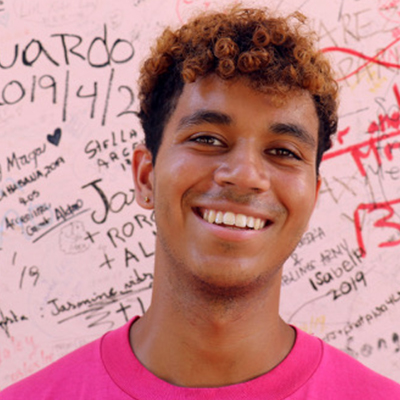 “Nos Espera Ansiosa la Libertad”: African Based Latin American Spirituality Among Puerto Ricans in Chicago
“Nos Espera Ansiosa la Libertad”: African Based Latin American Spirituality Among Puerto Ricans in Chicago
Shirin Vossoughi, Adviser
Elvia Mendoza, Reader
Gupta studied whether African-based Latin American spirituality offers the same types of spaces for freedom and liberation for Chicago’s Puerto Rican community as it does for practitioners in Cuba. Building off his research supported by a Summer Undergraduate Research grant, he interviewed a wide range of people who practice African-based Latin American spirituality to understand how they view liberation. He has previously researched Spiritism and African-based religious traditions in the Caribbean through a 2019 Historical Memory Fellowship and has taken courses in Cuba. At SESP, he took courses in religious and Latinx Studies. “With my 2020 SURG, I learned that Puerto Ricans in Puerto Rico engage with African-based Latin American spirituality because of the nourishment and belonging it provides them, but also because it offers them a connection with their African ancestors and a place to celebrate non-western identities,” he said.
Akie T. Kadota
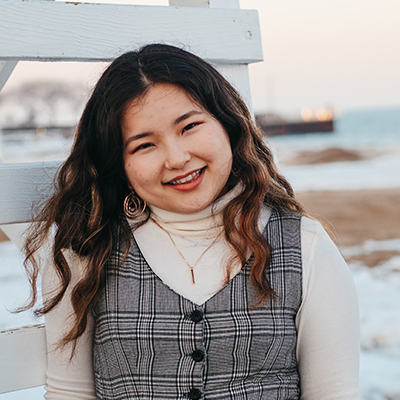 The Effect of Remote Learning on Secondary Ensemble-Based Music Education
The Effect of Remote Learning on Secondary Ensemble-Based Music Education
Sarah Bartolome, Adviser
Jolie Matthews, Reader
Kodota participated in the dual degree program in music and education and social policy, which allows students to develop their passion for music as a tool for creating change in learning environments, human relationships, organizations, and the field of social policy. Her thesis looked at how music teachers adapted their teaching in the wake of the COVID-19 pandemic. She interviewed 12 choral and instrumental public high school music teachers to see how the accessibility issues of learning in the pandemic shifted their educational values and the impact on classrooms. “A mass curricular reformation due to a pandemic can potentially incite new perspectives and values of what should be taught in the music classroom,” she said.
Rachel Kwak
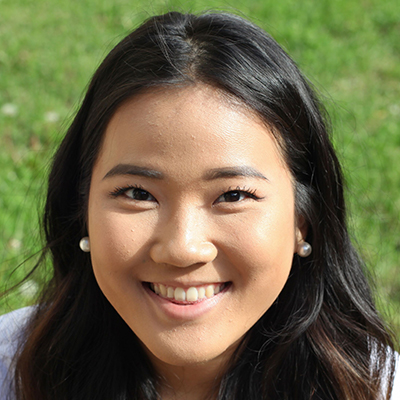 The Socio-Emotional Impacts of Misnaming & Misidentification on Asian Identifying Women in White Greek Life: That’s Not My Name
The Socio-Emotional Impacts of Misnaming & Misidentification on Asian Identifying Women in White Greek Life: That’s Not My Name
Shirin Vossoughi, Adviser
Patricia Nguyen, Reader
Kwak’s thesis looked at how misnaming–the act of mixing up people’s identities or calling them by the wrong name–impacts the well-being of women who identify as Asian. She focused how a “racial microaggression” like misnaming is processed by its victims who belong to White sororities. “As an Asian-identifying woman today, looking at the surge of anti-Asian racism and hate, it is important to study the roots of racist rhetoric by looking at the ‘subtle’ or not so visible acts of racial violences coupled with anti-Asian racism throughout American history,” she said. She is planning on taking a gap year after graduation and focusing on applying to law schools.
Madeline Lane
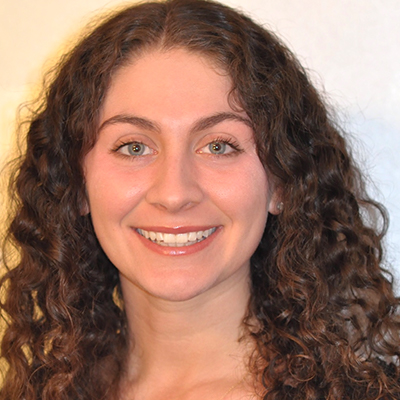 Zooming Through the College Experience: How Emerging Adults Approach the COVID-19 World
Zooming Through the College Experience: How Emerging Adults Approach the COVID-19 World
Lilah Shapiro, Adviser
Gina Logan, Reader
Lane interviewed 20 Northwestern students to examine the impact of COVID-19 related instability on academics, activities, relationships, and responsibilities. Findings suggested that students “have markedly shifted towards pragmatism and have assumed a number of ‘adult responsibilities,’ including caretaking and monitoring relatives’ behavior,” she wrote. “Students also describe disillusionment with America, altered peer relationships – whether influenced by trust, judgment, or a transition to virtual communication – as well as perceiving schoolwork as endless.” She noted that further analyses could help Northwestern and other institutions who want to support undergraduates.
Julia Lowenthal
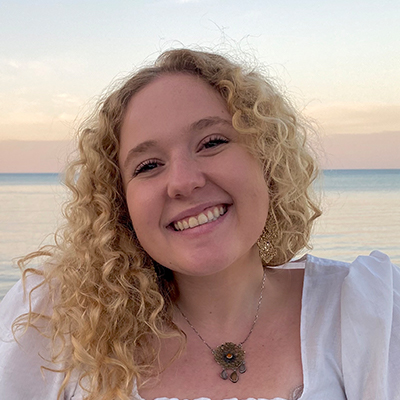 XOXO: The Normalization of Intimate Violence in Gossip Girl
XOXO: The Normalization of Intimate Violence in Gossip Girl
Lilah Shapiro, Adviser
Nick Davis, Reader
Lowenthal studied the impact of teen sexual and relationship violence by examining the messaging that adolescents receive from popular fictional media. Focusing on the teen television show “Gossip Girl” which ran from 2007 to 2012, she reviewed and analyzed how intimate violence was referenced and portrayed, both the acts of violence themselves and all comments on the topic. Her findings suggest that Gossip Girl “normalizes intimate violence, using schemas of romanticization and minimization to achieve this portrayal.” Her study “has implications for understanding how fictional media might refuse the normalization in their portrayal of intimate violence to better combat it and promote healthy representations of sex, romance, and relationships,” she wrote.
Alka Meresh
Attributing Blame During the Coronavirus Pandemic
Lilah Shapiro, Adviser
Sarah Rodriguez, Reader
Who is to blame for the COVID-19 pandemic? Meresh interviewed 12 Northwestern graduates to learn more about how people developed attitudes about and attributed blame during the pandemic. She analyzed and coded her data looking for themes about the origin of blame, and the ways these ideas reach the general public. Her work could be used to improve health campaigns or support programs designed to rebuild social and institutional trust, she said.
Desmond O’Keefe
Perceptions of Diversity Amongst Black Residents of Rogers Park
Dan Lewis, Adviser
Matt Easterday, Reader
O’Keefe explored the experiences of six Black residents who live in Rogers Park, one of Chicago's most diverse neighborhoods. “Learning how individuals perceive the diversity in their communities sheds light on how these communities function socially, the extent to which diversity satisfies the needs of the community, and how community members with different backgrounds work together to achieve common goals,” he said.
Lauren Reynolds
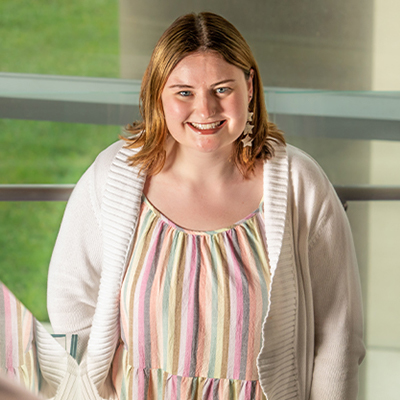 Student Determination of Acceptable Speech at Northwestern University
Student Determination of Acceptable Speech at Northwestern University
Lilah Shapiro, Adviser
Laura Nielsen, Reader
Reynolds looked at where Northwestern students draw the line between acceptable free speech and restrictions. She also explored the role of personal identities and affiliations as factors that influence one’s perspective of acceptable speech. The free speech debate is important because “while college campuses are considered a marketplace of ideas, those ideas may be perceived as racist, bigoted, or hurtful towards other students,” she said. “College students will contribute to the next generation of cultural thought leaders, so it is imperative to understand what they view as acceptable speech, and how they navigate campus debates about the issue.”
Simon Su
Holding Police Accountable: An Evaluation of Civilian Oversight in Chicago
Andy Papachristos, Adviser
Jeannette Colyvas, and Mischa Fisher, Readers
Su looked at whether increased civilian oversight improves police accountability by examining data from Chicago’s Civilian Office of Police Accountability (COPA). He found that COPA significantly increased Chicago Police Department compliance with the recommended disciplinary action for misconduct investigations. His findings “not only establish the importance of civilian oversight in police accountability, but also the government’s role in ensuring its successful operation,” he said.
Madeleine Ward
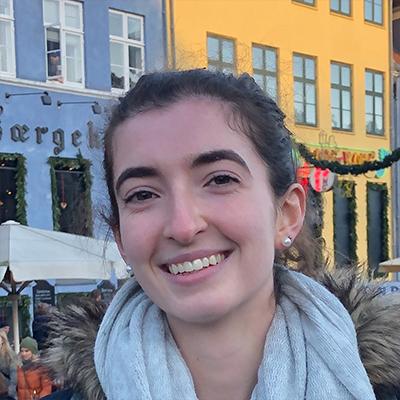 The Impact of Online Communities on the Social Identity of Sneakerheads
The Impact of Online Communities on the Social Identity of Sneakerheads
Jolie Matthews, Adviser
Lilah Shapiro, Reader
“Sneakerheads" enthusiastically collect, trade, sell and wear athletic shoes as a hobby or for a living. Ward researched how online shopping and forums have impacted sneakerheads’ social identity and sneaker culture by surveying and interviewing both new and veteran sneakerheads who are members of either the NikeTalk.com or the SneakerheadsUnite! Subreddit online forums. Ward’s interest in athletic shoes was piqued by a high school visit to the Converse headquarters. She joined sneaker sketching classes at the local public library, designed different sneaker patterns through a summer graphic design job, and befriended people who had side hustles restoring and selling sneakers. “I was always more interested in the creative side of sneakers, but with my thesis I wanted to learn more about individuals within sneaker culture and how they form communities online,” she said.